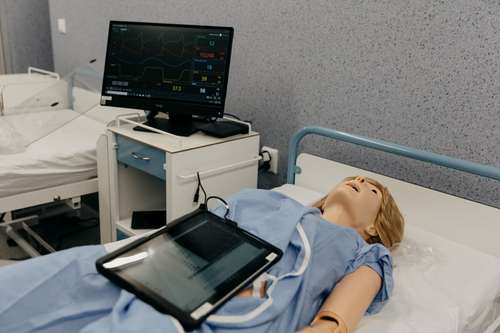Sleep Apnea's Link to Brain Microbleeds and Dementia Risk
Sometimes, when you wake up feeling groggy despite a full night's sleep, you might wonder if there's more going on than just tiredness. Sleep disorders, especially obstructive sleep apnea, can be more than just a nuisance – they could be silently affecting your brain health. Recent studies suggest that sleep apnea may be linked to tiny brain microbleeds that could eventually contribute to dementia risk, making it crucial to understand and address these sleep issues early on.
It’s surprising to think that an ailment most of us associate solely with snoring could be quietly contributing to serious brain injury. The reality is that the repetitive oxygen deprivation during sleep doesn't just tire you out—it may also impact the integrity of your blood vessels, increasing the risk of cerebrovascular events like brain hemorrhages and even dementia. With our lifestyles becoming ever more fast-paced, taking care of our sleep quality isn’t just about feeling rested; it’s about preserving long-term brain function.
Sleep Apnea and Its Neurological Effects
In this section, we explore how obstructive sleep apnea might influence your brain's overall health and function. Sleep apnea symptoms often include loud snoring, gasping, and interrupted sleep, but many are unaware that the condition could have a deeper, more dangerous impact. Let’s break it down.
The connection between sleep apnea and brain microbleeds is not always immediately obvious. When you suffer from sleep apnea, the repeated episodes of low oxygen, or hypoxia, put stress on your blood vessels. Over time, this stress can cause small leaks, or microbleeds, in the brain. It’s like wearing down a high-pressure pipe with constant fluctuations—it eventually starts to weaken.
This neurological impact of sleep apnea is a growing concern among researchers. They compare it to a slow, steady drip from a leaky faucet that, if ignored, can lead to bigger problems. The potential for brain damage, memory loss, and cognitive decline means that every snore might be a silent warning sign. Many experts emphasize that early diagnosis and effective apnea treatment can serve as crucial steps in brain injury prevention and dementia prevention.
Understanding Brain Microbleeds
Brain microbleeds may sound like a term lifted out of a science textbook, but they have very real implications for everyday brain function. In this section, we’ll delve into what these tiny bleeds are and why they matter.
Brain microbleeds are small, chronic brain hemorrhages that can be detected using advanced imaging techniques. Think of them as minor bruises on the brain's surface; while each individual microbleed might seem insignificant, a buildup over time can increase the risk of vascular dementia and other cognitive issues. This accumulation is similar to how a slow leak in a tire can eventually lead to a flat, even if it seemed minor at first.
Researchers have found that these cerebral microbleeds are commonly observed in patients with obstructive sleep apnea. The intermittent oxygen deprivation associated with sleep apnea seems to contribute to vascular stress, much like a car consistently driven on rough terrain eventually suffers wear and tear. It’s a startling reminder of how closely connected our sleep and brain health really are.
The importance of this research cannot be overstated. With brain microbleeds linked to increased dementia risk, understanding this association could lead to earlier interventions and improved outcomes for those affected by sleep disorders. The study of brain microbleeds connects the dots between chronic sleep issues and the future risk of cognitive decline, making a strong case for early diagnosis of sleep apnea symptoms and proactive treatment strategies.
Linking Sleep Apnea to Dementia Risk
This section focuses on the critical link between sleep apnea and the potential onset of dementia. With an aging population, the specter of dementia looms large, and understanding every contributing factor is essential.
Sleep apnea is increasingly being recognized as a risk factor for cognitive decline and dementia. Imagine your brain as a finely tuned machine that requires a constant supply of oxygen to operate. When obstructive sleep apnea disrupts this process, the result can be subtle damage that adds up over time. Each episode of oxygen deprivation may contribute to microscopic changes in the brain, setting the stage for problems like amyloid plaque formation and vascular dementia.
There is a growing body of evidence suggesting that untreated sleep apnea significantly increases dementia risk. Medical professionals compare it to a domino effect, where one health complication triggers another. For example, when brain microbleeds occur, they can interfere with normal brain function, leading to memory loss and even accelerating the progression of neurodegenerative disease. The notion that your nightly sleep quality could have such long-term consequences is both alarming and a call to action.
From a personal standpoint, many people have noted improvements in their overall cognitive health after receiving proper apnea treatment. This observation underscores the importance of early intervention. If you experience sleep apnea symptoms, seeking a proper sleep apnea diagnosis could be one of the best decisions you make for your long-term brain health. Without prompt treatment, the cumulative effect of these micro events might lead to a noticeable decline in brain function—a sobering prospect for anyone who values their mental vitality.
It’s crucial to view sleep apnea not just as a sleep disorder but as a broader health risk with serious neurological implications. Every time you ignore those early signs of sleep apnea, you may be unknowingly paving the way for detrimental brain damage and even a higher dementia risk later in life.
Diving Deeper: Prevention and Early Intervention
Prevention is always better than cure, and this section dives into how addressing sleep apnea early on can mitigate its far-reaching effects. By tackling sleep disorders head-on, you can potentially prevent the cascade of issues that lead to cognitive decline and brain damage.
Practical tips for reducing your dementia risk include seeking professional guidance if you suspect sleep apnea. It might sound simple, but getting a proper sleep study is a proactive step that eases both your sleep apnea symptoms and the potential neurological impact. For many people, practical interventions like using a CPAP machine and making lifestyle changes have led to better sleep and improved brain function.
Furthermore, public health messaging has increasingly focused on the vital link between sleep quality and brain health. By learning more about the connection between sleep disorders and cognitive decline, individuals can make more informed choices about their health. While it may seem overwhelming, protecting your brain health is as routine as brushing your teeth—an everyday habit that could save you significant trouble down the line.
Ultimately, the link between sleep apnea, brain microbleeds, and dementia risk underscores the value of sleep quality as a pillar for overall health. Even if you have a busy schedule, remember that investing time in proper sleep and addressing potential disorders can be your best defense against long-term brain injury and memory loss!
Final Thoughts
The relationship between sleep apnea and brain health is a wake-up call for many. It’s a reminder that our sleep patterns go far beyond mere rest—they play a crucial role in keeping our brains sharp and functional. By understanding the neurological impact of sleep apnea, you can appreciate the importance of early diagnosis and constant awareness of your sleep quality.
In summary, the silent risk of brain microbleeds and the potential for cognitive decline make it essential to treat sleep apnea seriously. With more research on the horizon, one can only hope that early intervention becomes the norm, ensuring that we all have a fighting chance at preventing dementia and other neurodegenerative diseases. So, take that step today if you suspect any sleep apnea symptoms; your brain might thank you in the long run!




